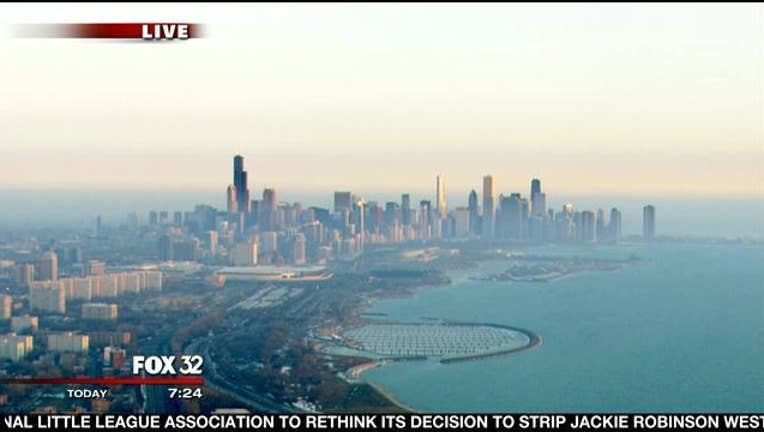Heat advisory issued for Chicago area as temps soar

City health officials are urging residents to keep cool this weekend, when the temperature outside could feel like a sweltering 110 degrees.
A heat advisory will be in effect for the entire Chicago area from 10 a.m. to 8 p.m. Saturday, according to the National Weather Service.
The high temperatures was projected to be 88-92 on Friday, with a heat index up to 106, according to the weather service. As of 4:50 p.m., the temperature at O’Hare was 89 degrees, but felt more like 97 with the heat index. An isolated storm is possible Friday night.
On Saturday, the temperatures will soar even higher, with “oppressive” heat and humidity, and highs expected between 92-97, the weather service said. Heat indexes could reach between 104-110 degrees.
The weather service advises everyone to drink plenty of water, schedule outdoor activities for after sunset, and wear light-colored, loose-fitting clothing.
City officials are urging residents to stay inside air-conditioned buildings as much as possible, and check on friends and neighbors, especially the elderly. Take cool showers or baths if necessary, and limit outdoor activities during the hottest time of the day.
Residents should not rely on a fan as a primary cooling source, according to the Department of Public Health. Anyone without access to air conditioning can call 311 to be directed to the nearest cooling center.
Two cooling centers—the King Center at 4314 S. Cottage Grove, and the North Area Center at 845 W. Wilson—will be open from 10 a.m. to 5 p.m., according to a statement from the mayor’s office.
Other city facilities such as libraries, police stations or other buildings may be available after hours as conditions warrant, the statement said.
The Garfield Center at 10 S. Kedzie is open around the clock every day to help connect residents to emergency shelters, the statement said. Seniors or individuals with limited mobility can call 311 to request a ride to the nearest cooling center.
Friday’s heat advisory was issued almost 20 years to the day after the 1995 historic Chicago heat wave, which resulted in hundreds of deaths.

